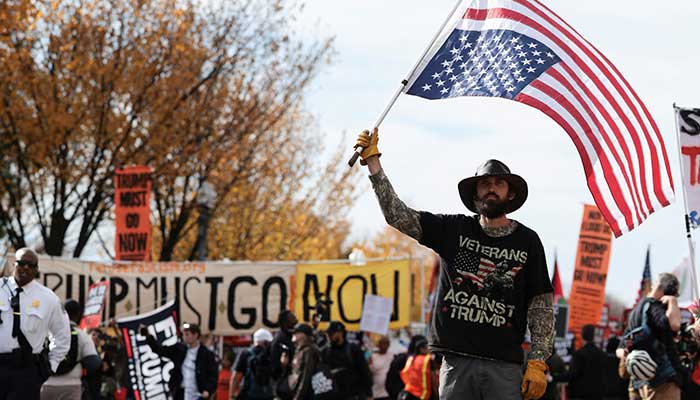Select Language:
In 2025, internet freedom in the U.S. and Germany experienced declines, as Western democracies adopted more online restrictions, aligning with authoritarian governments, according to an annual report by Freedom House. The report indicates that global internet freedom has decreased for the 15th consecutive year, with several nations still classified as “free” noticing declines.
Kian Vesteinsson, a co-author of the report, explained that authoritarian states are increasing repression, viewing online restrictions as a way to stay in power. He also noted a concerning trend within democracies, particularly in North America and Western Europe, where civic space is shrinking and restrictions on hate speech and problematic content are intensifying.
The United States scored 73 out of 100 on the internet freedom index for the period ending May 2025, marking its lowest score and dropping three points from the previous year. The report references actions by the Trump administration, including detaining non-U.S. citizens over their online speech, and hints at efforts by Secretary of State Marco Rubio to deport individuals based on statements related to Israel—temporarily challenged in courts.
Germany’s score fell by three points to 74, with the report citing increased self-censorship and stricter enforcement of hate speech and defamation laws. An example given is the suspension of a jail sentence and a fine on a far-right website editor for a social media post—featuring a manipulated image criticizing a politician. The Trump administration has previously criticized Germany’s free speech protections, citing their Nazi history as justification for safeguards.
The most notable setbacks were observed in Kenya, which temporarily shut down the internet during nationwide protests; Venezuela; and Georgia. Conversely, Serbia was downgraded from “free” to “partly free,” and Nicaragua was labeled “not free,” moving from “partially free.” Bangladesh saw the most significant improvement, as a new government eased restrictions following student protests.
Founded during World War II to promote democracy, Freedom House has traditionally been funded primarily by the U.S. government but remains independent. However, under Trump’s return to office, funding cuts led to layoffs within the organization.







